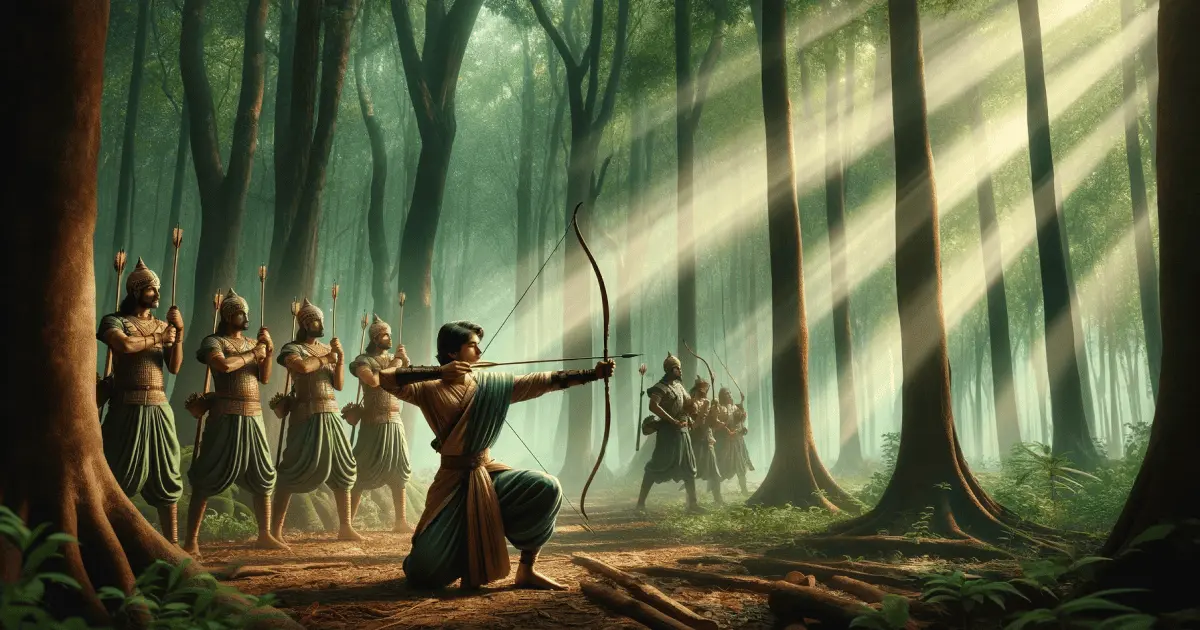Year 908, 7th Mv.Young Prince Kaushika was in a fine mood. It had rained heavily a day before, and today was cool and pleasant. The morning’s sun had dried the mud, and chased away the many insects that come with rain and humidity. It was shining bright and was a great day to be out on a hunt. At the age of seventeen, Kaushika could shoot an arrow as well as the best, and he was determined to bag at least two deer today. Vishvaratha was only a year elder, and had already lost count of how many deer he had hunted. Kaushika on the other hand, could count his kills within five fingers. He spied movement among the trees ahead, and signalled for his party of five men to stop. The soldiers obediently stopped and crouched, spotting the same movement their prince had.This was forest around Kanyakubja, a centuries old stronghold of the Grand Bharata Kingdom. It was the only river-crossing from the east of the Ganga, making it a crucial component in the functioning of Bharatvarsha. King Gathin of the Kushambha Bharatas ruled the city, spending half the year in Kanyakubja and the other in Kaushambhi. Kaushika brought out...
Of the Pūrus, a Short Story
Scenes from the era of the Pūrus.

Sign up to read this story
This story is part of our member-only exclusive access.
Upgrade to get full access to this short story and other membership benefits